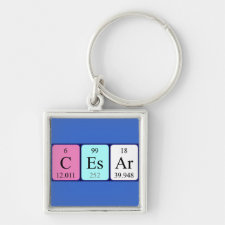
Authors: Casarin J, Gonçalves ACJr, Segatelli MG, Tarley CRT
Article Title: Insight into the performance of molecularly imprinted poly(methacrylic acid) and polyvinylimidazole for extraction of imazethapyr in aqueous medium.
Publication date: 2018
Journal: Chemical Engineering Journal
Volume: 343
Page numbers: 583-596.
DOI: 10.1016/j.cej.2018.03.030
Alternative URL: https://www.sciencedirect.com/science/article/pii/S1385894718303681
Abstract: The present paper describes the synthesis, characterization, and evaluation of two cross-linked molecularly imprinted poly(methacrylic acid) and polyvinylimidazole towards selective extraction of imazethapyr in aqueous medium. Characterization of materials was performed by FT-IR, TGA, SEM, TEM, elemental analysis and nitrogen adsorption/desorption measurements. Based on relative selectivity coefficients (k'), the molecularly imprinted polyvinylimidazole showed higher selectivity towards imazethapyr and some similar structurally compounds belonging to imidalizones families, imazapic and imazapyr, when compared with poly(methacrylic acid). The kinetics and isotherms of sorption as well as the thermodynamic parameters were then obtained by using the polyvinylimidazole. It was observed that the pseudo-first and second-order models provided the best fit for imazethapyr sorption. Regarding the sorption isotherm, the dual-site Langmuir-Freundlich model presented the best fit for the experimental data, thereby suggesting the existence of sorption sites with different affinities. The maximum sorption capacities obtained for the imprinted and non-imprinted polymers were found to be 27.1 and 24.4 mg g-1, respectively. According to the obtained thermodynamic parameters, Δ G (0.96 kJ mol-1), Δ H (-22.81 kJ mol-1) and Δ S (-79.73 J mol-1 K-1), it might be suggested that the sorption process is not too much favorable, exothermic and provides increase of order at the solid-solution interface. In this case, the low temperature is favorable for the sorption of imazethapyr, typical of physisorption, which match with low sorption activation energy (20.25 kJ mol-1) determined from Arrhenius equation. The molecularly imprinted polyvinylimidazole exhibited higher sorption capacity when compared with previously reported commercial sorbents for imazethapyr
Template and target information: imazethapyr
Author keywords: molecularly imprinted polymer, herbicides, sorption, kinetics, Imidazolinones, isotherm



Join the Society for Molecular Imprinting

New items RSS feed
Sign-up for e-mail updates:
Choose between receiving an occasional newsletter or more frequent e-mail alerts.
Click here to go to the sign-up page.
Is your name elemental or peptidic? Enter your name and find out by clicking either of the buttons below!
Other products you may like:
 MIPdatabase
MIPdatabase









